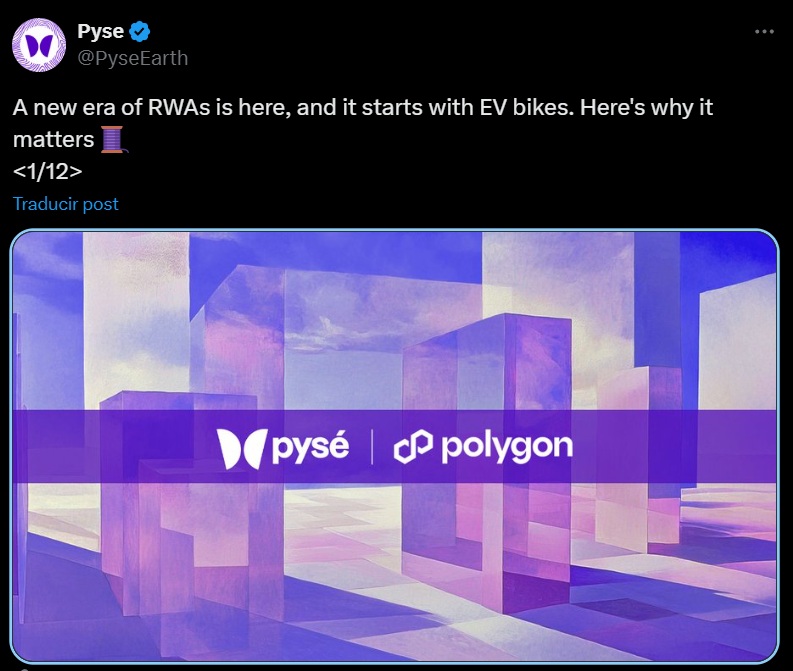TL;DR
- Polygon and Pyse launch a model that tokenizes electric delivery motorcycles and monetizes their environmental and urban data on blockchain.
- The system rewards users with tokens based on the value of the data generated, which is later commercialized for logistics and insurance.
- The expansion into India aims to digitize last-mile logistics, fractionalize fleet ownership, and open access to capital through blockchain.
Polygon and the startup Pyse are advancing the application of blockchain technology in the electric mobility industry with a project already operating in Dubai and preparing for its arrival in India.
The initiative involves tokenizing a fleet of electric delivery motorcycles, integrating their real-time data through the Polygon network. Each vehicle incorporates a device developed by Pyse that records environmental and urban information, such as air quality, road wear, and noise levels.
Polygon and Pyse Will Monetize the Data Collected by the Vehicles
This model enables the monetization of both the vehicle’s use and the data collected. Users receive rewards in the form of tokens, validated by associated protocols, based on the value of the data they generate. The strategy combines physical assets that produce stable income with an incentive layer based on urban information of strategic value for insurers, vehicle manufacturers, and logistics operators.
The project also addresses a recurring issue in the tokenization of real-world assets: the lack of dynamism in returns. While many similar initiatives focus on static assets like real estate or financial instruments, Pyse developed a variable-yield strategy through constant data collection and its commercialization in digital markets.
India: A Key Market
The expansion into India will focus on the last-mile logistics sector, one of the most fragmented and with the least access to traditional financing. The proposal will allow fleet operators to fractionalize vehicle ownership and distribute revenue according to contracts and usage. It also facilitates access to alternative capital sources through blockchain mechanisms.
Although crypto regulation in India remains undefined, Polygon clarifies that its role is limited to providing the technological infrastructure. Compliance management and operational oversight will fall to Pyse. The company plans to extend its model to ride-hailing and intercity logistics services in a second phase.
The value of urban data in emerging markets like India is generating strong interest. Pyse plans to structure a decentralized organization to let users decide how to use and commercialize that information. According to its executives, demand for urban data applied to logistics and insurance is already becoming visible in several Southeast Asian markets.













